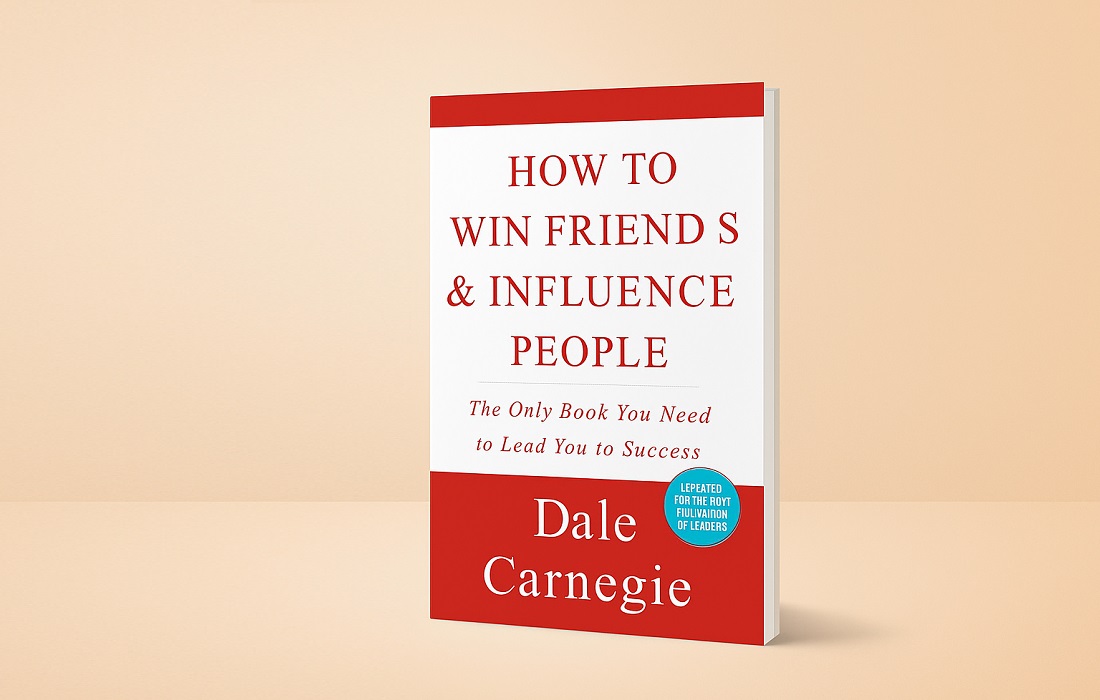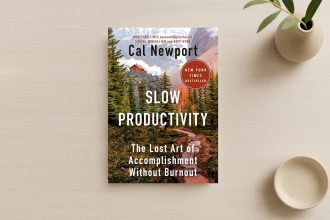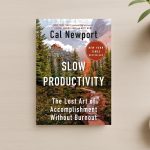How to Win Friends and Influence People by Dale Carnegie offers an enduring roadmap to building meaningful relationships and wielding influence with integrity. In a noisy world full of quick fixes and shallow networking, its principles cut through, reminding us that at the heart of success is the ability to connect deeply with others. For anyone looking to improve communication skills, boost leadership potential, or simply bring more harmony into daily interactions, this book stands as a timeless guide. Apply its lessons sincerely, and you’ll find that winning friends and influencing people becomes less about strategy and more about living well.
1. Introduction to How to Win Friends and Influence People by Dale Carnegie
Few books have stood the test of time as well as How to Win Friends and Influence People by Dale Carnegie. First published in 1936 during the Great Depression-a period when Americans were desperate for opportunities and connection-it quickly became a life manual for anyone seeking to improve relationships, make meaningful connections, and influence others without manipulation or coercion.
Today, nearly a century later, it remains one of the most widely read self‑improvement books in the world, translated into dozens of languages and inspiring generations of leaders, salespeople, educators, and everyday readers.
The genius of this book isn’t in offering revolutionary or complicated strategies but in masterfully articulating principles that are as applicable in the 21st century as they were in the 1930s. Its lessons feel both refreshingly simple and profoundly impactful, bridging personal development and interpersonal science long before either field became mainstream.
This review dives into the book’s enduring value, exploring its key ideas, timeless techniques, practical applications, strengths, weaknesses, and continuing relevance, all while considering why Carnegie’s advice continues to resonate in a digital age where genuine human connection is increasingly rare.
2. About the Author: Dale Carnegie
Before becoming a household name in personal development, Dale Carnegie was born Dale Carnagey in a small farm in Harmony Church, Missouri, in 1888. His early years were marked by modest means and rural living, conditions that forced him to develop people-oriented skills early on.
Carnegie’s path to success was anything but direct:
– He studied at State Teacher’s College in Warrensburg, Missouri, initially pursuing teaching.
– After college, he tried sales-selling correspondence courses, bacon, soap, and lard. This experience honed his communication and persuasion abilities.
– His big break came not from selling products but from realizing that teaching people to interact effectively could transform their careers and lives.
By the 1910s, Carnegie was teaching public speaking at the YMCA in New York. His approach was uniquely engaging-he emphasized confidence over rote memorization and personal connection over showmanship. The courses’ growing reputation led to the founding of the Dale Carnegie Institute, which would expand worldwide.
When How to Win Friends & Influence People was released, its warmth, humor, and practical steps revolutionized self‑help literature. Carnegie’s magic lay in combining well‑researched psychology, real‑life anecdotes, and deeply human empathy. He passed away in 1955, but his legacy endures in the global network of Dale Carnegie Training centers and in the millions still reading his work.
3. Overview of How to Win Friends and Influence People by Dale Carnegie
At its core, the book is a blueprint for engaging with others in ways that are respectful, persuasive, and mutually beneficial. It encourages readers to focus less on self‑promotion and more on cultivating authentic interest in others.
The principles are organized into four major parts:
- Fundamental Techniques in Handling People – Avoid direct criticism, show genuine appreciation, and inspire desire in others.
- Six Ways to Make People Like You – Become sincerely interested, smile, value people’s names, listen actively, align with their interests, and make them feel important.
- How to Win People to Your Way of Thinking – Refrain from arguing, respect differing opinions, admit mistakes, and encourage friendly agreement.
- Be a Leader: How to Change People Without Giving Offense or Arousing Resentment – Offer praise before correction, inspire a good reputation, and make corrections feel minor and achievable.
Each part is filled with examples-ranging from famous leaders to Carnegie’s seminar students-illustrating how these methods produce stronger relationships and greater influence.
4. Main Ideas & Concepts
Carnegie’s core philosophy rests on a few powerful but deceptively simple truths:
- Don’t Criticize, Condemn, or Complain
Criticism often sparks defensiveness, closing the door to real understanding. Instead, focus on encouragement and positive reinforcement.
- Give Honest and Sincere Appreciation
People crave recognition. Sincere appreciation-not flattery-feeds self-worth and opens the pathway to cooperation.
- Arouse an Eager Want
Effective influence shows people how something benefits them, not you. Understanding another’s needs is central to persuasion.
- Become Genuinely Interested in Other People
Self-interest is natural, but shifting focus to others creates deeper bonds. This means actively learning about people’s passions, goals, and concerns.
- Smile
A smile is universal and instantly disarming. It signals warmth, openness, and respect.
- Remember Names
Names are powerful symbols of identity. Using someone’s name makes interactions personal and valued.
- Be a Good Listener
Listening builds trust. Carnegie advises letting others do the talking while you genuinely pay attention.
- Talk in Terms of the Other Person’s Interests
Relevance keeps people engaged and shows empathy for their world.
- Make Others Feel Important-Sincerely
Recognizing someone’s value transforms interactions from transactional to meaningful.
- The Only Way to Win an Argument Is to Avoid It
Arguments rarely convert; they often entrench opposing views. Seek common ground instead.
- Show Respect for Others’ Opinions
Even if you disagree, acknowledging another’s perspective fosters dialogue rather than division.
- Admit When You’re Wrong
Swift, emphatic admission of error earns instant credibility.
- Begin in a Friendly Way
Tone sets the stage for conversation-friendliness opens more doors than confrontation.
- Let Others Talk and Own Ideas
People buy into ideas they feel they helped create.
- Appeal to Nobler Motives
Tap into values, ideals, and aspirations, not just logic or self-interest.
- Praise Before You Correct
Positive feedback encourages openness to constructive criticism.
- Give a Fine Reputation to Live Up To
Expectations can inspire higher performance.
5. Key Lessons Learned
– Influence is built on respect, not manipulation.
– Empathy is strategic-understanding others accelerates cooperation.
– Kindness compounds-consistent positive interactions build a strong reputation.
– Listening is more persuasive than talking-people value being heard.
– Personal touches matter-remembering names, smiling, and genuine interest create rapport quickly.
6. Pros and Cons
Strengths
- Timeless Relevance
The advice applies across eras, industries, and cultures.
- Actionable Principles
Each chapter translates into specific behaviors you can implement immediately.
- Accessible Language
Written in a light, conversational tone with memorable anecdotes.
- Broad Applicability
Useful for leaders, salespeople, educators, students-anyone who interacts with people.
- Proven Legacy
Millions have credited its principles with transforming their personal and professional relationships.
Criticisms
- Potential for Misuse
When applied insincerely, these techniques risk becoming manipulative.
- Cultural Nuances
Some examples cater more to Western norms and may need adaptation elsewhere.
- Anecdotal Over Data-Driven
Stories outweigh scientific or statistical backing, which modern readers might want.
- Repetition
Many principles overlap, which can feel redundant for advanced readers.
7. Impact and Relevance Today
In the era of digital communication, social media influencers, and AI interactions, Carnegie’s ideas are more critical than ever. While technology has transformed how we connect, it hasn’t changed core human needs-respect, recognition, and understanding.
From corporate boardrooms to virtual networking events, the ability to empathize, listen, and communicate persuasively is still a competitive advantage. Modern leaders often cite Carnegie’s book as the foundation for emotional intelligence and authentic leadership.
8. Applying the Principles in Real Life
– Leadership: Start meetings by expressing sincere appreciation; address concerns privately and constructively.
– Sales: Discover client needs before pitching; frame solutions as enabling their goals.
– Customer Service: Listen without interruption, empathize with frustrations, and thank customers genuinely.
– Personal Relationships: Celebrate others’ achievements, remember important details, and avoid needless criticism.
9. Verdict & Recommendation
How to Win Friends & Influence People earns its place as a personal development classic. Its principles, when applied sincerely, can profoundly improve both personal and professional interactions. While some language and examples reflect its era, the core message remains evergreen: genuine interest in others is the key to connection and influence.
This isn’t a book to read once; it’s a manual to revisit repeatedly, each time discovering new ways to apply its simple but profound wisdom.
10. Conclusion: How to Win Friends and Influence People by Dale Carnegie
How to Win Friends and Influence People by Dale Carnegie offers an enduring roadmap to building meaningful relationships and wielding influence with integrity. In a noisy world full of quick fixes and shallow networking, its principles cut through-reminding us that at the heart of success is the ability to connect deeply with others.
For anyone looking to improve communication skills, boost leadership potential, or simply bring more harmony into daily interactions, this book stands as a timeless guide. Apply its lessons sincerely, and you’ll find that winning friends and influencing people becomes less about strategy-and more about living well.
If you found this review helpful, please share it or leave a comment below.






















One Comment
A timeless classic that remains profoundly relevant. Carnegie’s principles for building genuine connections through empathy, appreciation, and sincere interest in others are foundational for personal and professional success. It’s less about manipulation and more about mastering the art of human relationships. Essential reading.